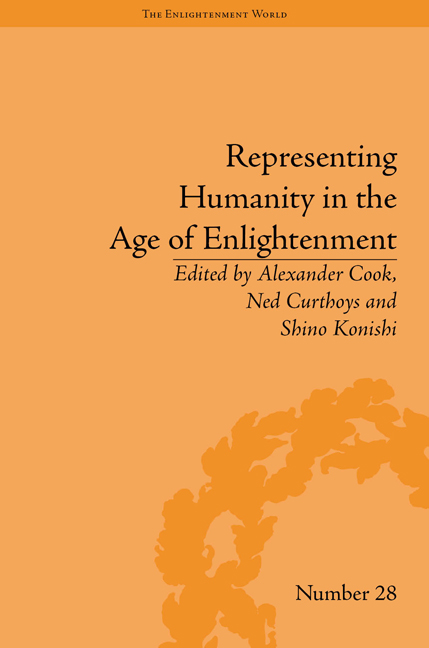Book contents
- Frontmatter
- CONTENTS
- Acknowledgements
- Dedication
- List of Contributors
- List of Figures
- The Science and Politics of Humanity in the Eighteenth Century: An Introduction
- Part I Humanity and the Civilizing Process
- Part II Encountering Humanity
- Part III The Limits of Humanity
- 11 Fictions of Human Community
- 12 Fairy-Tale Humanity in French Libertine Fiction of the Mid-Eighteenth Century
- 13 Philosophical Anthropology and the Sadean ‘System’ or, Sade and the Question of Enlightenment Humanism
- Notes
- Index
13 - Philosophical Anthropology and the Sadean ‘System’ or, Sade and the Question of Enlightenment Humanism
from Part III - The Limits of Humanity
- Frontmatter
- CONTENTS
- Acknowledgements
- Dedication
- List of Contributors
- List of Figures
- The Science and Politics of Humanity in the Eighteenth Century: An Introduction
- Part I Humanity and the Civilizing Process
- Part II Encountering Humanity
- Part III The Limits of Humanity
- 11 Fictions of Human Community
- 12 Fairy-Tale Humanity in French Libertine Fiction of the Mid-Eighteenth Century
- 13 Philosophical Anthropology and the Sadean ‘System’ or, Sade and the Question of Enlightenment Humanism
- Notes
- Index
Summary
No inquiry into the Enlightenment's representations of the human would be complete without addressing the problem posed by one of the period's most infamous and problematical figures, Donatien Alphonse François, Marquis de Sade (1740–1814). Sade's infamy has been firmly established by the excesses of his literary/pornographic imagination. The problem he poses for contextual intellectual history, however, has less to do with his gratuitous hyperbole than with the difficulty of reconciling Sade's thinking with the context within which it was situated. This chapter will explore Sade's complex relationship with the broader Enlightenment's modes of representing the human. Sade was an eager participant in the period's science of the human and as such his thought is unproblematically continuous with its context. Yet significantly, it is precisely because of the scientific aspects of his project that Sade refused to elevate the human within the realm of nature. This set the condition for Sade's rejection of the period's ethical-political humanism. This chapter's study of Sade's philosophical anthropology draws into focus the polymorphous nature of Enlightenment humanism and the manner in which its various moments could be, and in Sade were, drawn apart and indeed set against each other.
The association of the Enlightenment with humanism is not just a feature of recent historiography. It has been a long-lived theme.
- Type
- Chapter
- Information
- Representing Humanity in the Age of Enlightenment , pp. 173 - 184Publisher: Pickering & ChattoFirst published in: 2014



